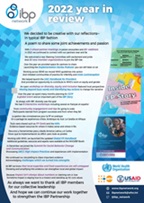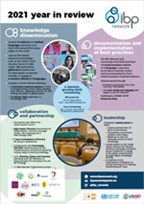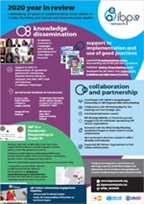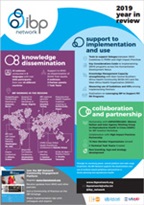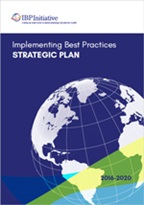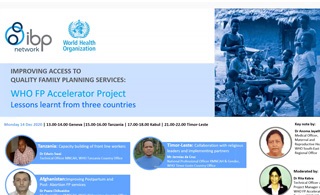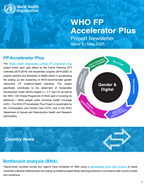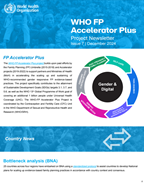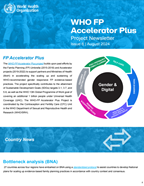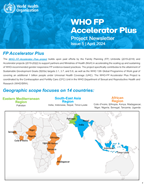Midwife conducts a consultation with a patient before fitting her with an IUD.
Building partnerships to increase access to contraceptive methods
WHO works with partners at the global, regional and country level to strengthen and improve family planning and reproductive health outcomes.
These partnerships focus on increasing access to contraceptive tools and products, improving implementation of family planning programmes, and mobilising global commitments to address the unmet need for family planning,
Through the Implementing Best Practices (IBP) Network, NGOs, civil society organizations, governments, academic institutions, and other implementing partners meet to exchange and transfer knowledge, expertise and experience in order to improve reproductive health programming. IBP is hosted by WHO and was founded in 1999 by WHO, UNFPA, USAID and 9 cooperating agencies with three objectives:
- increase access to WHO tools, and learn from users to inform development of new family planning resources
- support implementation and scale-up of evidence-based interventions
- enhance collaboration and encourage multi-sector links between partners
These activities and partner networks are essential for advancing family planning advocacy, policy, financing, and programming globally.
Initiative: The WHO Family Planning “Accelerator project”


